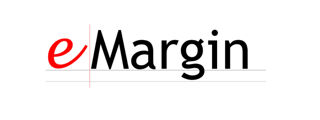eMargin is an online collaborative annotation tool that lets you highlight, colour-code, write notes and assign tags to individual words or passages of a text. These annotations can be shared amongst groups, generating discussions and allowing analyses and interpretations to be combined.
Researchers
Research background
The initial aim of the eMargin project was to bridge the gap between two distinct approaches to textual analysis: the top-down, quantitative approach of corpus linguistics and the fine-grained, introspective approach of literary close reading in a classroom context. With the proliferation of eBooks and online databases, the limitations of the traditional close-reading approach were becoming apparent: notes on physical texts become cluttered and are not easily shared or reused, teachers rarely see a record of a student’s close-reading progress and recreating class-based close reading for distance-learning students is particularly challenging. Despite the proliferation of Web 2.0 technologies, we found none suitable to resolve these issues.
Research methods
Our solution, eMargin, is a web-based annotation tool which, by moving the annotation process online, enables collaboration and discussion across multiple locations in both synchronous and asynchronous modes, as well as retaining a digital record of students’ progress. eMargin was developed through two Jisc grants.
Research outcomes
The benefits of eMargin are felt widely in teaching, with tens of thousands of teachers and students from HE, FE, secondary schools and language schools worldwide registering to use the tool. The wide applicability of the tool is evidenced through its use across disciplines. eMargin also provides solutions for streamlined Virtual Learning Environment (VLE) integration. Users typically adopt a blended-learning approach, where eMargin facilitates a seamless transition between face-to-face seminars and collaborative activities outside the classroom. For instance, teachers report that textual annotations made by students in eMargin before each lesson are useful in anticipating classroom activities and that students who are usually quieter in class are often more active when using eMargin. Students and teachers worldwide found eMargin’s blended approach particularly valuable when face-to-face seminars became impossible during the COVID-19 pandemic.
eMargin was designed as a teaching tool but its use has been extended to other areas of collaborative textual annotation and interpretation. An example comes from the Belgian and Alicantian chapters of the Spanish political party Podemos. Podemos was founded in 2014 and immediately employed a democratic process in the development of its manifesto. The party uploaded all sections of the draft document to eMargin for party members to discuss. Combining so many views would usually be extremely complex but, using eMargin, Podemos was able to fully engage political party members in the construction of a manifesto.
